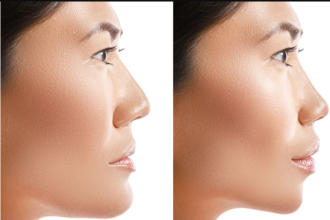Some people still believe that a pre-existing medical condition will prevent them from claiming damages after a car accident. If you are under this impression, you will be relieved to know that it is a misconception. Even if you have a pre-existing condition or injury, you still have the legal right to claim compensation after a car accident. And, what’s more, your pre-existing condition may even lead to a higher payout under certain circumstances.
The reality is that car accidents can worsen pre-existing medical conditions. If you sustain injuries that worsen your condition, you can claim treatment costs for that condition and new injuries.
What Is a Pre-Existing Condition?
Pre-existing conditions include any medical condition you receive treatment for before a car accident. Several conditions may become worse after an accident, including arthritis, herniated discs, and pre-existing head or neck injuries.
However, it is not always easy to claim damages for the aggravation of a pre-existing condition. Insurance companies often use these conditions as a reason to reduce payouts. They typically argue that an accident victim would have had to receive medical treatment regardless of the car crash. But again, this should not put you off from claiming compensation after an accident. If you suffer a re-injury or if your existing condition worsens after an accident, you can legally file a compensation claim.
Should You Even Mention a Pre-Existing Condition?
It is crucial to mention pre-existing conditions to your lawyer to claim compensation after an accident. For example, if you have a herniated disc, you will receive regular treatment for it. If your symptoms worsen after a car accident, you may require surgery. This means you can claim for the surgery costs. However, if you do not mention your pre-existing condition, you cannot claim. If you suffered a back injury or traumatic brain injury, a car accident can significantly affect your existing symptoms. In this instance, you can claim for medical treatment as well. The same goes for suffering a fracture in a limb you had previously broken.
What Is the Eggshell Skull Rule?
U.S. law includes a doctrine called the Eggshell Skull Rule. This doctrine is based on the fact that no two accident victims are alike. Some have no pre-existing conditions, while others may have previous injuries and ongoing health problems. Either way, these differences should not dictate whether an accident victim can claim damages. This is despite the fact that one victim may be more likely to suffer a re-injury or experience worsening symptoms than another. The Eggshell Skull rule protects you if you have a pre-existing condition and allows you to recover medical costs.
The Eggshell Skull Rule also prevents insurance companies from blaming your injuries on your pre-existing condition. According to this doctrine, the person at fault for the accident is responsible for damage caused regardless of pre-existing medical conditions.
How Does the Eggshell Skull Rule Apply to Your Compensation Claim?
If you claim special damages after a car accident, such as medical costs, the Eggshell Skull Rule protects you against discrimination. It prevents insurance companies from offering you less compensation than you deserve. It also holds the at-fault person liable for all the consequences of the accident.
However, it is crucial to remember that the doctrine does not make you eligible for payment for an illness or injury you had before the accident. It only allows you to claim compensation for medical expenses related to the aggravation of your condition.
Also, the Eggshell Skull Rule only applies to physical injury. The doctrine is not applicable if you want to claim compensation for pain and suffering (emotional damages). However, depending on your state and your legal representation, you may be able to make a case for worsened emotional distress after a car accident.
The Eggshell Skull Rule applies in all 50 states, but the exact application differs from state to state. You must hire a lawyer for representation to ensure you get the compensation you deserve after an accident you had no fault in.
What to Do Immediately After a Car Accident
It is also essential to follow the correct steps immediately after an accident. Accidents are traumatic, so it may be difficult to remember what to do, but you can keep a checklist in your car just in case.
The first thing to do is to move out of the way if you are in the middle of the road. Only do this if it is safe to do so. If you or the other driver are injured, ask someone to call 911 and the police. Also, do your best to prevent more injuries by staying off the road. It is typical for accident victims to wander around after an accident because of shock. Try not to do this or ask a bystander to stay with you until the authorities arrive.
If the accident was not your fault, gather as much evidence as you can. This includes getting the name, address, and driver’s license details from the other driver. If the other driver wants to leave before the police arrive, convince them to stay. If they refuse to, get a photograph of their license plate.
You should also get passengers’ and witnesses’ names and contact numbers at the scene. Take photos of the damage to both vehicles and the surrounding area. Lastly, get the details of the police officers on the scene and remember to secure a copy of the accident report.
When you leave the accident scene, you must go for a checkup at an emergency room or your doctor’s office. Do this even if you feel fine. The extent of physical injuries is not always immediately apparent. You may suddenly collapse or suffer a medical emergency hours after the accident. Getting checked will also improve the chances of an insurance payout when you file a claim.
Claim Compensation Wisely
No matter what the insurance company throws at you, stay calm and relay the truth about the accident. Tell them about existing injuries and worsening symptoms as they apply to the accident. With a legal representative and the Eggshell Skull Rule on your side, chances are that you will have a positive payment outcome.














